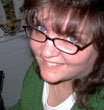Okay - let's talk about regular third person, which is my favorite point of view. King and Browne say, "If the first person invites intimacy and the omniscient narrator allows for perspective, the third person strikes a balance between the two."
When I wrote Fairyeater, I wrote in third person, but switched points of view either in a new chapter or a scene change. By knowing what the antagonist was up to, as well as the heroine, it filled out the story and raised tension.
What we need to remember when writing in third person is we can't know what the other characters are thinking or feeling or seeing or hearing, etc. if they don't tell us. We need to stay in the main character's point of view, only switching when there is a clear scene break or a new chapter. It's not easy at first, but it's worth learning this part of the craft.
The POV character can draw conclusions by what they observe or overhear. They can reveal what they know or they can keep it secret - but the reader will know if we write their thoughts. If you have something you want kept secret, even from the reader, then you can't reveal it at all.
Think about it this way: you are at home and your best friend is on vacation. Do you know what he/she is doing? What they're thinking? How they're feeling? How can you unless he/she tells you? It's the same with your characters. There's something intriguing about not knowing what's going on in everyone's head, and it's good to let things out a little at a time.
Here's an example from Fairyeater. The heroine, Akeela, has been raised by a curmudgeonly old hag, Krezma. She can't figure out what she did to deserve such treatment. Then a stranger, Oret, shows up at their hut. He communicates telepathically. Akeela is sent on an errand, but she hides and listens in while they talk about a prophecy. Notice how I reveal things while still staying in Akeela's POV.
Krezma grew silent, smoothing her hand over the words. “I never asked for this. I did not want to raise another child.”
Akeela blinked. Another child?
-Who else could we have turned to? You alone know the power of the Dark Lord and the history of the Guardian-
“Yes, I know. I know. And I am the only one the Fairy Council trusted.” Krezma slid back from the table and stood. She rolled up the scroll. “But I have my own life! My own plans. I have given up much.”
Oret bowed his head. -We know this and are grateful. Has it been so terrible, raising Akeela?-
Akeela held a hand over mouth to keep from gasping.
Krezma sighed. “Nay, it has not been terrible. Akeela is like my own child, and yet, she is not. I am torn. It is not time to reveal her destiny. She is so young. I am unsure she can handle it.”
Akeela sat down on the ground. Her head whirled with questions. She always knew Krezma had no great love for her, but what was the meaning of the prophecy? Why did Krezma want to keep it a secret? What did the words mean? And what couldn’t she handle? Her destiny?
Akeela picked up the basket and crept away from the window as Krezma and Oret’s voices continued. She lifted her skirt and ran all the way to the pond.
King and Browne say: "Sometimes there are good reasons for maintaining narrative distance." I stayed in Akeela's POV, but wrote the scene with some narrative distance because it was important for Akeela to learn this piece of information.
Of everything you can learn about the craft of writing, POV is the most fundamental. It's how you show who your characters are. It lets you show emotions, share a character's thoughts and concerns and sets the tone of the story. Point of view is a powerful tool. I advise you to read more about it in King and Browne's book.
I'd love to see some examples from your writing, too!
Don't Plant Trees!
12 years ago







No comments:
Post a Comment